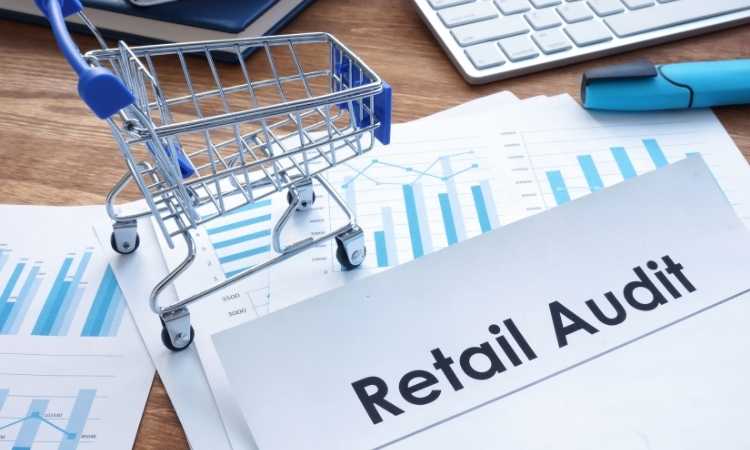In today’s competitive and fast-moving retail industry, maintaining operational control, financial accuracy, and regulatory compliance is essential. Businesses are increasingly relying on internal audits in retail to enhance performance, identify risks, and strengthen accountability.
An internal audit serves as a structured review of a company’s internal processes, financial transactions, and operational effectiveness. For retail businesses in particular, it plays a vital role in minimizing fraud, improving cash flow management, and ensuring inventory accuracy.
The Growing Importance of Internal Audits in Retail
Retail operations often span multiple departments, locations, and systems, all of which need to work in sync for the business to thrive. From supply chain logistics to point-of-sale transactions, even minor oversights can result in significant financial losses or reputational damage.
This is where internal audits in retail make a measurable difference. They provide business owners and management with deep insights into how the organization is performing, where improvements are needed, and how risks can be controlled.
Conducting regular audits allows retail companies to maintain transparency, avoid regulatory penalties, and prevent internal fraud before it escalates.
What Retail Internal Audits Typically Cover
A well-executed retail audit is comprehensive in scope. It examines various aspects of operations to provide an accurate picture of business health. Key areas commonly reviewed include:
Cash handling and reconciliation practices
Inventory management and shrinkage control
Point-of-sale system integrity
Vendor billing accuracy and purchase orders
Compliance with accounting standards and tax laws
Effectiveness of internal controls and segregation of duties
Employee conduct and procedural adherence
By evaluating each of these critical areas, businesses can detect weak points and take corrective measures before they impact profitability.
Key Benefits of Retail Internal Audits
Implementing a strong internal audit process brings multiple advantages to retail businesses of all sizes:
1. Improved Operational Efficiency
Internal audits uncover inefficiencies in daily operations and help streamline workflows. For instance, identifying duplicate efforts, outdated systems, or manual errors allows management to introduce automation or new controls.
2. Accurate Inventory and Reduced Losses
Retailers face frequent issues with stock discrepancies, theft, and spoilage. Through retail audit practices, organizations gain better visibility into inventory management and can minimize losses associated with shrinkage.
3. Fraud Prevention
Fraud and internal misconduct can occur at various levels of retail operations. Audits help detect unusual patterns or discrepancies in cash handling, discount policies, or supplier agreements, enabling timely intervention.
4. Regulatory and Tax Compliance
Retailers must adhere to multiple laws related to consumer protection, taxation, financial reporting, and labor practices. Internal audits ensure that compliance is embedded in daily operations, reducing the likelihood of non-compliance penalties.
5. Strategic Decision-Making
With reliable audit data, management can make better financial and operational decisions. Understanding where the business is most vulnerable empowers leadership to prioritize areas that need attention or investment.
Retail Challenges Addressed by Internal Audits
Retail businesses operate in a constantly evolving environment influenced by economic cycles, consumer behavior, and technological advancements. Some of the common challenges where internal audits in retail provide clarity and structure include:
Rapid expansion into new markets or regions
Integration of new retail technology or POS systems
High employee turnover is impacting controls
Unreconciled financial discrepancies or sudden margin drops
Frequent stock write-offs or unexplained inventory losses
Audits act as a safeguard, giving business owners the ability to measure performance accurately while protecting their operations from unexpected disruptions.
Customized Retail Audit Services
No two retail businesses are alike, and audit services must reflect each company’s structure, size, and objectives. A customized audit plan begins with understanding your specific risks and operational model.
Professional consultants design tailored checklists, review processes, and reporting formats that suit your business. These services may include:
Store-level operational audits
Franchisee and branch performance reviews
Financial and tax audit alignment
Compliance assessments under UAE laws
Cash flow and payroll evaluations
By adjusting the audit scope based on your business goals, these services deliver meaningful insights and practical recommendations.

Role of Technology in Retail Auditing
Technology is playing an increasingly important role in modern auditing. With digital tools and data analytics, consultants can assess performance trends, detect irregularities, and monitor operations in real time.
Advanced retail audit systems use dashboards, automated alerts, and cloud-based documentation to reduce human error and ensure timely reporting. This makes the audit process not only more accurate but also more efficient and scalable for growing businesses.
Why Work with a Professional Audit Firm?
While some businesses attempt to conduct audits in-house, outsourcing to experts ensures an objective, structured, and compliant approach. Engaging a firm like Dubai Business and Tax Advisors brings several benefits:
Access to retail-focused audit expertise
Up-to-date knowledge of local laws and industry best practices
Independent evaluation that eliminates bias
Detailed audit reports for management and stakeholders
Ongoing advisory for improving systems and procedures
Having an external partner also sends a message of transparency and commitment to good governance, both of which are valuable in the eyes of investors and regulators.
Conclusion
For retail businesses looking to scale sustainably, reduce operational risk, and improve financial discipline, internal audits in retail are not just an option; they are a necessity. By evaluating your controls, systems, and compliance processes, internal audits create the foundation for stronger decision-making and improved efficiency.
Dubai Business and Tax Advisors offers retail businesses across the UAE the expertise they need to implement effective internal audit procedures. With deep industry experience and a customized approach, the firm helps retail operations unlock value, reduce exposure to fraud, and align with legal requirements.
Whether you are managing a single outlet or a large retail chain, professional auditing ensures that your business runs with precision, confidence, and accountability. Investing in internal audits today will set your retail operation on a more secure, compliant, and profitable path for the future.